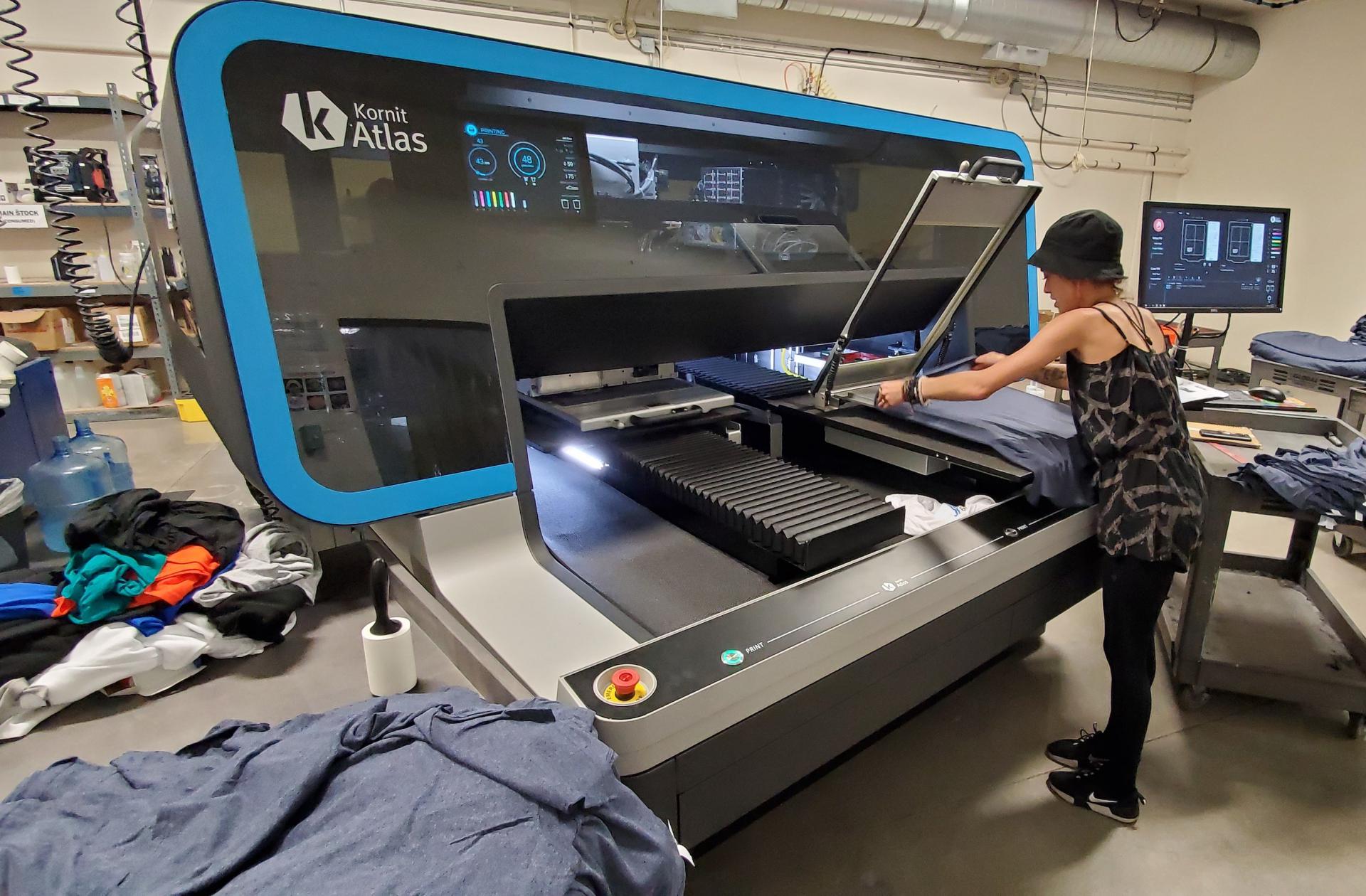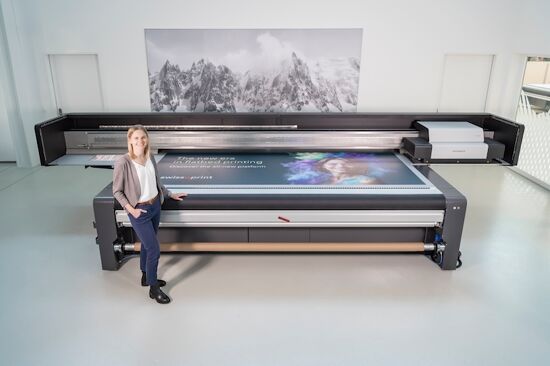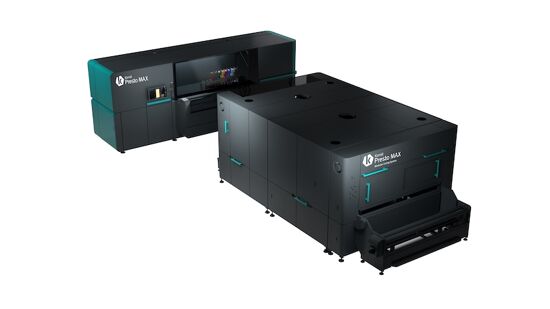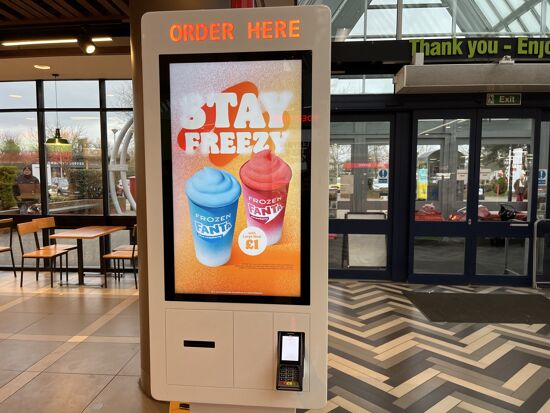Spreadshirt expands partnership with Kornit Digital to support growth
.jpg?width=750)
Kornit Digital and Spreadshirt, the self-expression global e-commerce company, announced an expanded partnership for Spreadshirt to grow and renew its fleet of DTG printers to support increased demand and to expand into new categories.
Spreadshirt, a global on-demand apparel brand printing more than 5.5 million items annually, recently launched a division for third-party fulfilment that is already seeing rapid growth. The company also plans to expand into polyester sports clothing. Spreadshirt prioritizes quality and customer satisfaction and will be investing in Kornit’s most innovative print technologies in order to meet the highest quality standards and deliver fast turnaround to their customers, while increasing productivity and efficiency.
Spreadshirt has purchased Kornit Atlas systems, to be installed at multiple sites internationally. The Kornit Atlas is a high-capacity system, designed to deliver typical annual production capacity of up to 350,000 impressions, optimizing production efficiency and cost of ownership. The system is aimed at highly productive garment decorators, mid-to-large-size screen printers, and innovative businesses looking to combine state-of-the art technology with lowest cost of ownership.
.jpg?lang=en-GB)
In addition, Spreadshirt has been testing the Kornit Avalanche Poly Pro, as they plan to expand their business into the lucrative and growing sports and athleisure segments. The Kornit Avalanche Poly Pro is the industry’s first digital, industrial process for high-quality printing on polyester, preventing dye-migration. The solution is based on Kornit’s patented NeoPoly Technology.
Hanne Dinkel, Chief Customer Delivery Officer of Spreadshirt, commented, “Quality and customer satisfaction have top priority at Spreadshirt. With the significant investment we are making in new technologies and machines, we will not only achieve top print results, but we will also be able to meet more customer demands in less time.”
Omer Kulka, Kornit’s VP of Marketing and Product Strategy, added, “Our mission is to reinvent the garment and textile printing industry with game-changing technologies. It is exciting to see this mission come to life, with visionary customers like Spreadshirt who innovate to open new markets and new business opportunities, all while being more operationally efficient.”
Topics
Interested in joining our community?
Enquire today about joining your local FESPA Association or FESPA Direct
Recent news

The importance of ink for large format printers
Ink is crucial for large format inkjet printers, influencing substrate compatibility, productivity, and cost. Nessan Cleary discusses the three main types which include UV-curable ink, latex ink and eco-solvent ink. Each ink type has specific strengths and weaknesses, making printers choice dependent on budget and intended applications.

What are the benefits of Direct-To-Fabric printing?
Direct-to-fabric printing is gaining popularity for high-volume textile production, enabling on-demand, customized short runs. These printers offer ink flexibility, accommodating various fabric types like cotton and silk, though ink development focuses on faster turnaround by reducing pre- and post-processing. Compared to traditional methods, direct-to-fabric inkjet printing is a more sustainable option due to reduced water and chemical usage, and localized production.

What are the opportunities for large format providers regarding digital touch screens?
Digital touchscreens are becoming increasingly common, offering businesses opportunities to improve customer engagement and streamline operations. Nessan Cleary shares, while more expensive to implement than standard digital displays due to complex software and integration needs, touchscreens provide self-service options, multilingual support, and can reduce staffing costs in various settings like retail, transportation, and healthcare.
